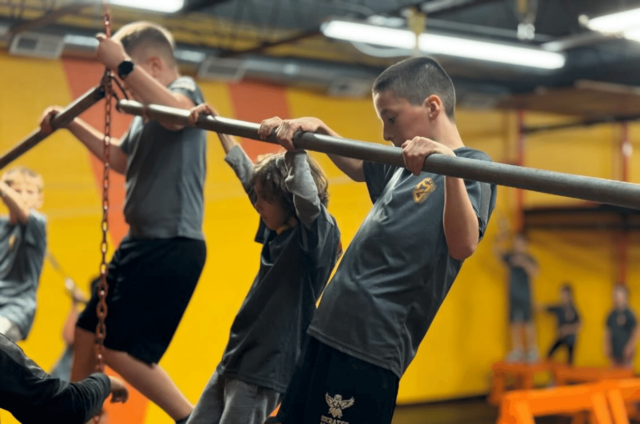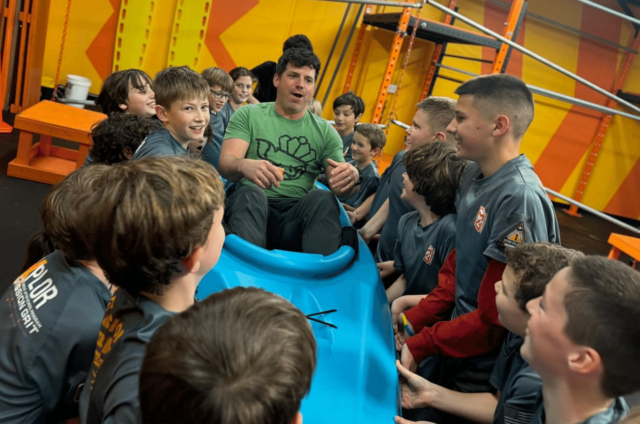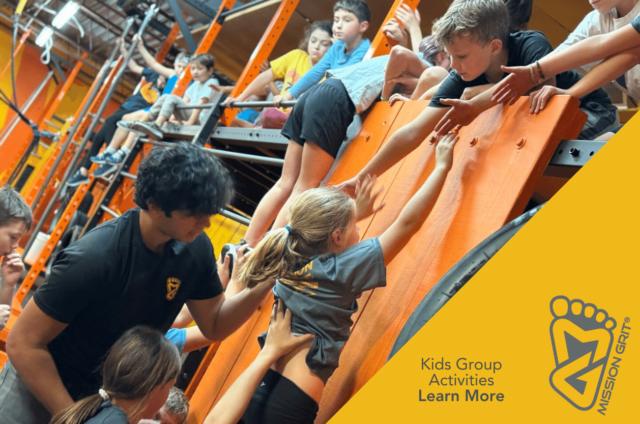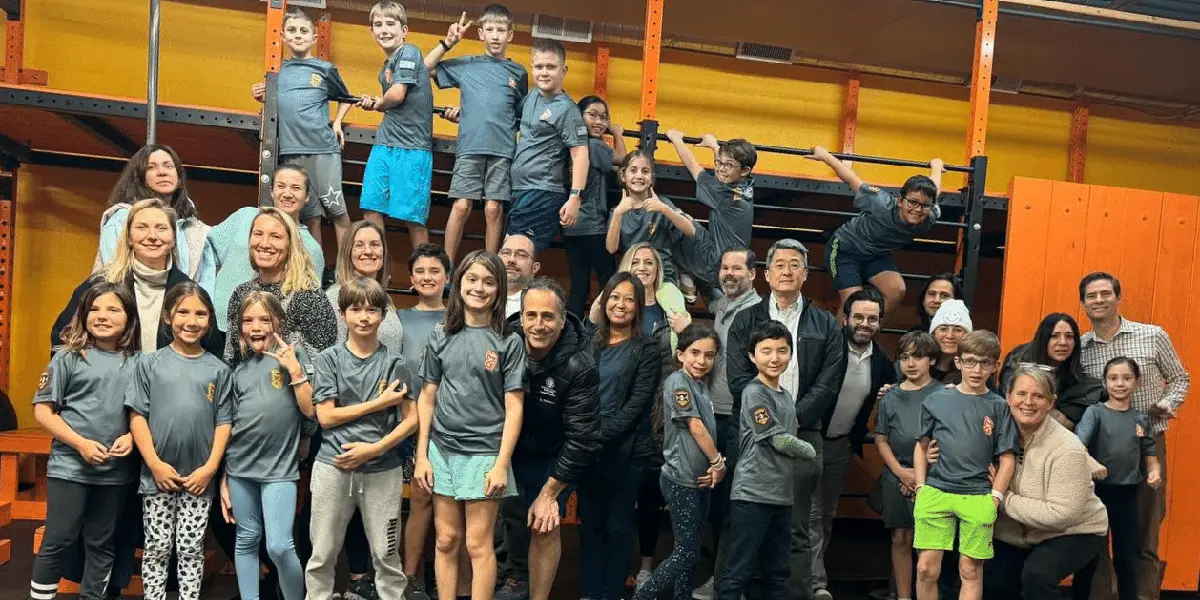Why Group Activities for Kids are Essential for Development and Well-being
Group activities play a crucial role in the development and well-being of children. They are not just opportunities for fun and play but are pivotal in teaching kids valuable life skills, enhancing their emotional intelligence, and fostering a sense of community. This blog post explores the myriad benefits of group activities for children and underscores why parents, educators, and community leaders should prioritize these experiences.

1. Social Skills Development
One of the primary advantages of group activities is the development of social skills.
Children learn to communicate, share, and work together towards common goals.
Through group activities, kids understand the importance of teamwork, empathy, and respecting differences, which are essential skills for navigating the complexities of social interactions throughout life. Beyond learning to communicate and cooperate, children involved in group activities also refine their negotiation and conflict resolution skills. They encounter situations where compromise and understanding are necessary, teaching them how to resolve disagreements in a constructive manner. These experiences in early childhood lay the foundation for effective interpersonal skills in adulthood, preparing children to navigate complex social networks with grace and confidence.
2. Enhanced Self-esteem and Confidence
Participating in group activities can significantly boost a child’s self-esteem and confidence. When children achieve goals as part of a team, it reinforces their sense of accomplishment and belonging. This sense of achievement and recognition from peers and adults helps build their self-confidence, encouraging them to take on new challenges. The positive feedback loop created by successful group interactions plays a critical role in reinforcing a child’s self-image. As children contribute to a team’s success, they receive validation from both peers and adults, which further strengthens their self-belief. This validation is vital in encouraging children to step out of their comfort zones, try new activities, and persist in the face of challenges, thereby fostering a resilient and confident mindset.

3. Physical Health and Development
Many group activities involve physical exercise, which is vital for the healthy growth and development of children.
Activities such as sports, dance, or outdoor games promote physical health, improve motor skills, and encourage a lifelong habit of staying active.
Group activities not only promote physical fitness but also teach children about the importance of health and wellness. By participating in team sports or group physical challenges, children learn valuable lessons about nutrition, the benefits of regular exercise, and the importance of maintaining a healthy lifestyle. These early lessons in health education can instill habits that prevent obesity, diabetes, and other health issues later in life.
Also read:
4. Cognitive and Academic Skills
Group activities are not only about physical play; they also offer opportunities for cognitive and academic skill development. Educational games, problem-solving tasks, and creative projects enhance cognitive abilities, improve concentration, and support academic learning in areas like math, science, and literacy. The collaborative nature of group activities enhances children’s cognitive development in unique ways. They learn to think critically, solve problems collaboratively, and apply what they learn in real-world scenarios. This experiential learning process deepens their understanding and retention of academic concepts, preparing them for complex problem-solving and analytical thinking in future educational endeavors and careers.
5. Emotional Intelligence
Participating in group settings allows children to develop emotional intelligence. They learn to recognize and express their feelings, understand the emotions of others, and develop coping strategies for managing frustrations and disagreements. These skills are crucial for personal well-being and the ability to maintain healthy relationships. Group activities also offer a safe space for children to navigate emotional challenges, thereby enhancing their resilience. By facing setbacks and celebrating successes within a group, children learn to manage disappointment, cultivate patience, and experience joy in others’ achievements. These experiences are critical for developing a balanced emotional perspective and empathy, which are key components of emotional intelligence.

6. Creativity and Imagination
Group activities often involve elements of creativity and imagination, allowing children to explore new ideas and express themselves in diverse ways. Whether through art, music, storytelling, or play, these activities stimulate creative thinking and innovation. In a group setting, children are exposed to diverse ways of thinking and problem-solving, which can significantly expand their creative horizons. Collaborating on projects allows children to bounce ideas off each other, leading to more innovative solutions and creative expressions. This dynamic exchange of ideas not only fuels imagination but also encourages children to appreciate and incorporate different viewpoints into their creative endeavors.
7. Exposure to Diversity
Engaging in group activities with peers from various backgrounds promotes cultural understanding and acceptance. Children learn about different perspectives and lifestyles, fostering an inclusive attitude and appreciation for diversity. This exposure broadens their understanding and fosters a global perspective from a young age. Learning to appreciate and celebrate differences prepares children for the increasingly multicultural and interconnected world they will live in, promoting tolerance and global citizenship.

8. Leadership and Responsibility
Group activities provide opportunities for children to take on leadership roles and learn about responsibility. Whether leading a team in a sport or directing a group project, these experiences teach children about decision-making, guiding others, and being accountable for outcomes. The opportunity to lead or take responsibility within a group teaches children about accountability and the impact of their actions on others. Leadership roles in group activities help children develop organizational skills, the ability to motivate and inspire others, and the confidence to make decisions. These early experiences in leadership and responsibility are invaluable in cultivating the next generation of leaders and change-makers.
Also read: How to Develop Leadership in Kids

Group Activities for Kids: Why Mission Grit?
Mission Grit in Charlotte, Carolina, stands out as an exemplary venue for kids’ group activities, offering tailored programs that cater to diverse age groups and promote holistic development. Its focus on teamwork, leadership, and resilience helps enhance children’s social skills, self-esteem, and physical health in a safe and inclusive environment. By challenging children with activities that foster cognitive skills, creativity, and emotional intelligence, Mission Grit ensures a well-rounded experience. The combination of physical challenges, problem-solving tasks, and creative projects makes it an ideal setting for nurturing the growth and development of young minds and bodies, making it a premier choice for parents and educators seeking enriching group activities for kids.
See Kids’ Group Activities:
Conclusion
Group activities are indispensable for the holistic development of children. They equip kids with essential life skills, from social interaction and physical health to emotional intelligence and creativity. By encouraging participation in group activities, we prepare our children for successful, well-rounded lives. Parents, educators, and community leaders should therefore make concerted efforts to include a variety of group activities in children’s routines, ensuring th



